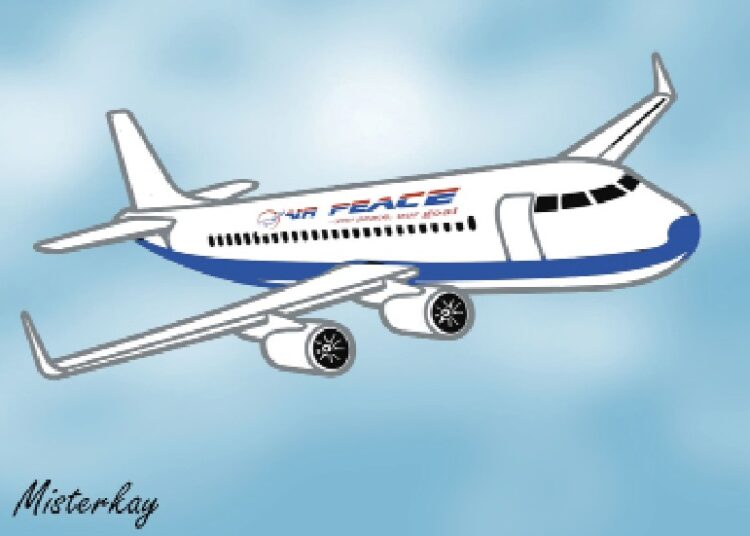Nigerian corporate influence and that of the West continue to collide. The rationale is straightforward: whereas corporate activity in Europe and America is part of their larger local and foreign policy engagement, privately owned enterprises in Nigeria or commercial interests are not part of Nigeria’s foreign policy ecosystem, neither is there a strong culture of government support for privately owned enterprises’ expansion locally and internationally.
It is evident that relationship between Nigerian businesses and foreign policy is important to the national interest. When backing domestic Nigerian companies to compete on a worldwide scale, the government should see it as a lever to drive foreign policy, national strategic interest, promote trade, enhance national security considerations, minimize distortion in the domestic market as the foreign airlines were doing, boost GDP, create employment opportunities, and optimise corporate returns for the firms.
Admitted nations do not always interfere directly in their companies’ business and commercial dealings, and there are always exceptions. I can cite two areas of exception: military sales by companies because of their strategic implications and are, therefore, part of foreign and diplomatic policy and processes. The second is where the products or routes of a company have implications for foreign policy. Air Peace falls into the second category in the Lagos-London route.
The Airpeace Case And National Interest
Two events demonstrate an emerging trend that, if not checked, will disincentivize Nigerian firms from competing in the global marketplace. There are other notable examples, but I am using these two examples because they are very recent and ongoing, and they are typological representations of the need for Nigerian government backing and support for local companies that are playing in a very competitive international market dominated by big foreign companies whose governments are using all forms of foreign policies and diplomacy to support and sustain.
The first is Airpeace. It is the only Nigerian-owned aviation company playing globally and checkmating the dominance of foreign airlines. The most recent advance is the commencement of flights on the Lagos-London route. In Nigeria, foreign airlines are well-established and accustomed to a lack of rivalry, yet a free-market economy depends on the existence of competition. Nigeria has significantly larger airline profits per passenger than other comparable African nations. Insufficient competition has resulted in high ticket costs and poor service quality. It is precisely this jinx that Airpeace is attempting to break.
On March 30, 2024, Air Peace reciprocated the lopsided Bilateral Air Service Agreement (BASA) between Nigeria and the United Kingdom when the local airline began direct flight operations from Lagos to Gatwick Airport in London. This elicited several reactions from foreign airlines backed by their various sovereigns because of their strategic interest. A critical response is the commencement of a price war. Before the Airpeace entry, the price of international flight tickets on the Lagos-London route had soared to as much as N3.5 million for the economy ticket. However, after Airpeace introduced a return economy class ticket priced at N1.2 million, foreign carriers like British Airways, Virgin Atlantic, and Qatar Airways reduced their fares significantly to remain competitive.
In a price war, there is little the government can do. In an open-market competitive situation such as this, our government must not act in a manner that suggests it is antagonistic to foreign players and competitors. There must be an appearance of a level playing field. However, the government owes Airpeace protection against foreign competitors backed by their home governments. This is in the overall interest of the Nigerian consumer of goods and services. Competition history in the airspace works where the Consumer Protection Authority in the host country is active. This is almost absent in Nigeria and it is a reason why foreign airlines have been arbitrary in pricing their tickets. Nigerian consumers are often at the mercy of these foreign firms who lack any vista of patriotism and are more inclined to protect the national interest of their governments and countries.
It would not be too much to expect Nigerian companies playing globally to benefit from the protection of the Nigerian government to limit influence peddling by foreign-owned companies. The success of Airpeace should enable a more competitive and sustainable market, allowing domestic players to grow their network and propel Nigeria to the forefront of international aviation.
Military Procurement And National Interest
The second is Proforce, a Nigerian-owned military hardware manufacturing firm active in Rwanda, Chad, Mali, Ghana, Niger, Burkina Faso, and South Sudan. Despite the growing capacity of Proforce in military hardware manufacturing, Nigeria entered two lopsided arrangements with two UAE firms to supply military equipment worth billions of dollars , respectively. Both deals are backed by the UAE government but executed by UAE firms.
These deals on a more extensive web are not unconnected with UAE’s national strategic interest. In pursuit of its strategic national interest, India is pushing Indian firms to supply military equipment to Nigeria. The Nigerian defence equipment market has seen weaker indigenous competitors driven out due to the combination of local manufacturers’ lack of competitive capacity and government patronage of Asian, European, and US firms in the defence equipment manufacturing sector.
This is a misnomer and needs to be corrected. Not only should our government be the primary customer of this firm if its products meet international standards, but it should also support and protect it from the harsh competitive realities of a challenging but strategic market directly linked to our national military procurement ecosystem.
The ability to produce military hardware locally is significant to our defence strategy. This firm and similar companies playing in this strategic defence area must be considered strategic and have a considerable place in Nigeria’s foreign policy calculations. Protecting Nigeria’s interests is the primary reason for our engagement in global diplomacy.
The government must deliberately balance national interest with capacity and competence in military hardware purchases. It will not be too much to ask these foreign firms to partner with local companies so we can embed the technology transfer advantages.
Why We Should Support Local Firms
Our government must create an environment that enables our local companies to compete globally and ply their trades in various countries. It should be part of the government’s overall economic, strategic growth agenda to identify areas or sectors in which Nigerian companies have a competitive advantage, especially in the sub-region and across Africa and support the companies in these sectors to advance and grow to dominate in the African region with a view to competing globally. Government support in the form of incentives such as competitive grants ,tax credit for consumers ,low-interest capital, patronage, G2G business, operational support, and diplomatic lobbying, amongst others, will alter the competitive landscape. Governments and key government agencies in the west retain the services of lobbying firms in pursuit of its strategic interest.
Nigerian firms’ competitiveness on a global scale can only be enhanced by the support of the Nigerian government. Foreign policy interests should be a key driver of Nigerian trade agreements.
How does the Nigerian government support private companies to grow and compete globally? Is it intentionally mapping out growth areas and creating opportunities for Nigerian firms to maximize their potential? Is the government at the domestic level removing bottlenecks and impediments to private company growth, allowing a level playing field for these companies to compete with international companies? Why is the government patronising foreign firms against local firms if their products are of similar value? Why are Nigerian consumers left to the hands of international companies in some sectors without the government actively supporting the growth of local firms to compete in those sectors? These questions merit honest answers.
Nigerian national interest must be the driving factor for our foreign policies, which must cover the private sector, just as is the case with most developed countries. The new global capitalism is not a product of accident or chance; the government has choreographed and shaped it by using foreign policies to support and protect local firms competing globally. Nigeria must learn to do the same to build a strong economy with more jobs.





